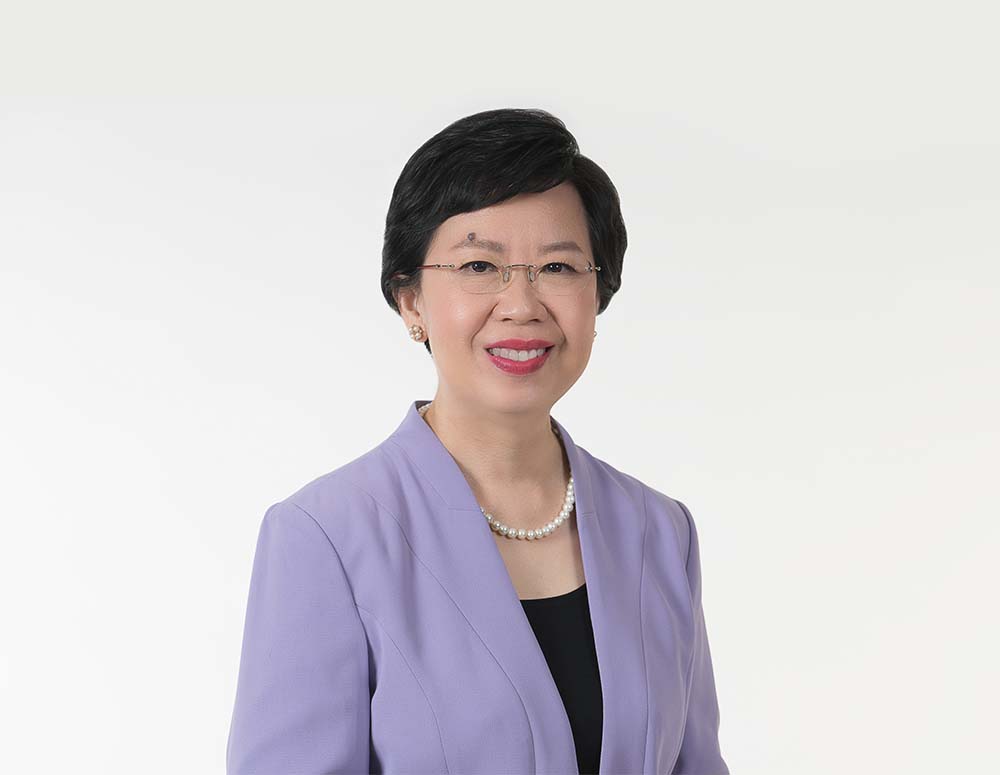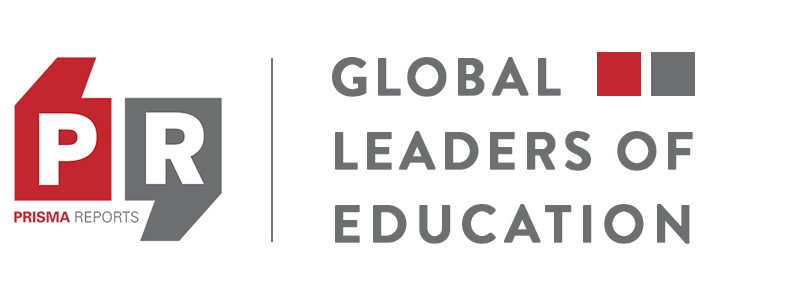
20 Oct Singapore leads sustainable development
Lily Kong, President, Singapore Management University, describes the institution’s efforts to push sustainability and new digital advancements to promote improved learning and social action
What ethos does Singapore Management University (SMU) stand for and how does it differentiate from other institutions?
We are unique in our focus on the three following essential areas that we ensure our students understand: digital transformation, sustainability and growth in Asia. We cover the entire spectrum of courses one would expect in a business school, but sharpen our focus on these areas. We also have a remarkably close relationship with industry. We offer our students all the opportunities they deserve to work closely with businesses. Through our SMU-X pedagogy, internships and work-study electives students develop excellent rapport with the world of business. Collaborating employers love our graduates because they always find them to be ready for work.
How has the COVID-19 pandemic changed the school’s focus on education?
The crisis had us all question our priorities. However, we are now doubly convinced our focus areas are more important than ever. In a world so radically transformed by the pandemic, digital transformation, sustainable living and understanding the potential that Asia has for the world are going to be crucial. We are gratified to know our core values have stood up.
Universities have all been affected in how we deliver education. Student feedback has helped us improve over the pandemic period, both in terms of the quality of the courses and the quality of instruction. My colleagues have all risen to the occasion and quickly pivoted online, delivering a quality of education that holds true to what we believe in pedagogically. We recognize that a student is an individual who has individual learning needs. Students are social beings who learn through interaction. We have intentionally avoided putting a talking head online and used technology to enhance interactions instead of taking away from them.
Students are a member of a community and learning takes place within the community, not just the classroom. In that vein, we have put in place international virtual internships, exchanges and community work. Just because you cannot travel abroad does not mean that you cannot sit in a virtual classroom with students from California, for example. We have taken the best from the experiences learned in the COVID-19 pandemic and anchored them in our manner of educating.
What is SMU doing to promote sustainability in its curricula and internal operations?
We are just now completing the next phase of our sustainability plan. The first phase completed in 2020 was committing to making our buildings environmentally sustainable, an effort for which we won various awards. We also committed to and attained certain energy and water consumption targets. Our next phase we will be much more ambitious. We will continue to ramp up our targets, but as an institution of higher learning, we can make more of a difference in thought leadership than non-educational institutions.
We have rolled out a sustainability major; we are ramping up opportunities for internships in areas pertaining to sustainability; and our students are working to help communities in the region become more sustainable over time. They are working on SMU-X projects in these areas to get their hands dirty and work on real-world projects. We are working on changing physical urban environments. We have a project called Cooling Singapore 2.0. Being on the equator, Singapore is extremely warm and consumes a lot of energy through air conditioning. We are helping to develop sustainable methods through our climate scientists and historians who have worked on climate change issues over time.
Research is extremely important. We have colleagues working on sustainability metrics to help companies quantify measurable improvements in sustainability. Another area is green finance; we have jointly established the Singapore Green Finance Centre that does research in this area. Hopefully, the entire spectrum of research possibilities will allow us to provide thought leadership that will make a difference.
What is SMU doing to incorporate new digital technologies in its teaching and research?
Again, we have three areas of focus: the education we offer students, our research and our digital transformation journey as an organization. We have embedded new courses on digital transformation in our mandatory core curriculum. We cover more than just the technical side of things, such as computational thinking. We foster understanding of the impact of digital transformation on the wellbeing of society and our mental health. Our core values are at work here. We also have specific new programs such as digital business, which is a collaborative effort between our Lee Kong Chian School of Business and our School of Computing and Information Systems.
We are a very collaborative university; this multidisciplinary aspect has made us stronger and more competitive. We also introduced a program for computing and law, because the lawyers of the future are going to need to understand artificial intelligence (AI), data governance and similar issues, while computer scientists are going to need to understand legal and regulatory frameworks within which they will work. Likewise we have established a Centre for AI and Data Governance, led by our Yong Pung How School of Law. It explores how AI has burst onto the scene and the need for regulatory and governance frameworks for AI to be put to good use in society.
We also have our Centre for Computational Law for which we have hired computer scientists and legal experts to study how the profession of law is going to change. There is code being written that will allow lawyers to be relieved from doing certain work. Templates are cleverly picked out through AI to suit the purpose at hand, which frees lawyers to do more essential work. We are also developing research on financial forensics in our SMU School of Accountancy by looking at how to better detect fraud using AI. As a university we are transforming our processes and training our colleagues to make sure they are equipped with a level of skills commensurate with new available technologies.
What has SMU done to set new trends in its executive level programs?
As an immediate response to the COVID-19 pandemic, SMU Executive Development (SMU-ExD) made swift changes by ramping up our digital offerings and launching entirely new programs. We converted all our custom programs to live online programs while developing new programs in digital finance leadership and growing infrastructure. We have also begun developing a suite of asynchronous programs addressing digital transformation, AI and machine learning, product management and cybersecurity that will be offered around the region.
As pandemic restrictions are eased in Singapore, we are moving to work more in partnerships with our clients along the lines of a hybridized path, leveraging the innate strengths of both the physical and the virtual settings. The possibilities for executive education are especially exciting. Digital technology empowers educators to transition from providing learning products to enabling lifelong learning journeys. Collective experiences delivered in the classroom will continue to be crucial. However, with the hybrid model comes the ability for individual participants to customize how they build upon the foundational knowledge acquired during in-person courses, set their own pace of learning and select asynchronous or simultaneous modules as it suits them. In building the post-pandemic world, lifelong learning will become more important than ever. SMU-ExD is using the power of knowledge to create new opportunities. SMU is constantly developing pathways to engage alumni to continue their lifelong learning journey.
How significant was accepting your role as first female head of a university in Singapore?
It was an incredibly significant moment in higher education in Singapore. More than an honor, it was a responsibility to show that women can be leaders in the world of higher education in a way that had not happened thus far in this country. With the privilege came a responsibility to open up opportunities. I have been very mindful at both the student and faculty level and with the professional and corporate services within the university to ensure that we have developmental plans for individuals both male and female, especially to allow women equal opportunity to develop their potential. Various organizations from Goldman Sachs Group to BlackRock that are extremely aware of the need to increase diversity and support women have come to me wishing to collaborate on supporting young people, whether through mentorship programs or speaking engagements to share my experiences.
